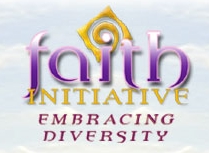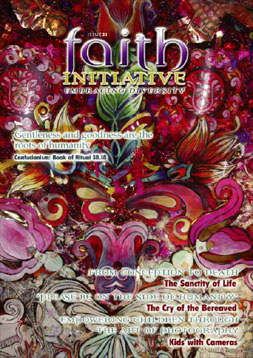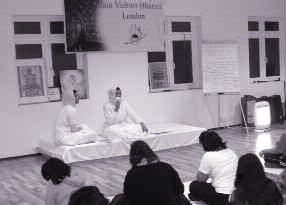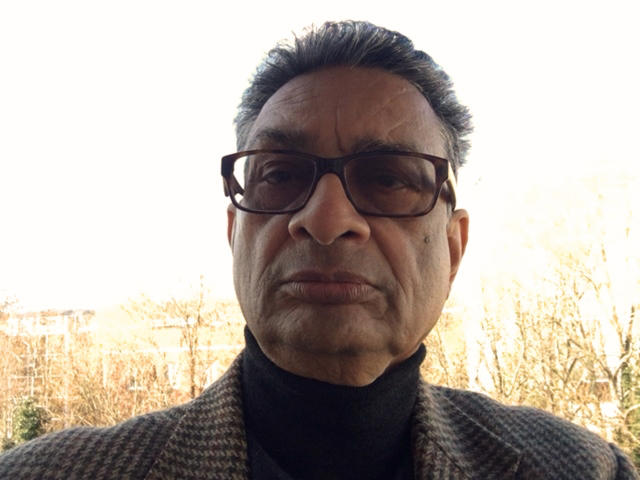
Faith Initiative Magazine

Belief in reincarnation is a foundation of the Jain faith. Death is viewed not as the end of life but a pivotal point in the journey of the jiva (soul). At death the jiva leaves its body and progresses to its next place of birth virtually instantaneously. However, the condition of the jiva, as affected by its previous behaviour (karma),will determine what sort of new life it will enter into. Death is a comma, not a full stop. Death should be embraced, and not feared or shirked in any way. It is the window to everlasting freedom and immortality.
In Jainism karma is linked to the notion of samsara, the idea of the cycle of death, birth or rebirth that entraps the soul until it achieves liberation, known as mokhsa, also called nirvana. Liberation is the point where the soul transcends the material world and reaches a higher level of consciousness. Nirvana is the ultimate goal and is a state of eternal bliss,wherein one’s jiva becomes free of all karmas.The jiva is then pure and in its natural blissful state, free from the cycle of death and rebirth - immortality is the destiny of the enlightened and liberated jiva.
It is clearly written in the scriptures that death can strike anyone at any time.What is essential is the preparedness for death. To escape from karmic bondage one must learn to discriminate between punya and papa, between positive and negative acts. To Jains, emergence of karmic cycle involves shedding or stripping away layers of unwanted and irrelevant matter, the ‘stuff’ of karma that binds the soul.As with other Indian religions, the mental state at the precise moment of death is regarded by Jains as particularly important for determining the nature of the next body. Jainism has always been intent on conveying that a calm death free from rancour, frustration or pain,with mind fixed on religious principles at the end of one life, will ensure a positive rebirth. It is therefore important first to stop the actions, which can be physical, vocal and mental, that bring about karmic bondage. The patient is encouraged to move away from his or her material life and focus more and more on spiritual matters. Attachment and aversion bind more karmic particles. Therefore distancing away from them stops further accumulation of bad karmas. The dying patient is encouraged to perform auspicious activities which help to shed bad karmas accumulated in previous life.
 |
Samani Prasanna Pragya & Samani Rohit Pragya teaching at Jain Vishva Bharati, London. For further information please see: www.jvblondon.org |
Prayers also act as a catalyst to give spiritual strength.The types of prayers to be recited are mantras, stotras and hymns. A mantra is a combination of sacred syllables which forms a nucleus of spiritual energy. Some mantras have a bija (seed) like aum, hrim added to them to give an added power. Stotras are jain hymns written in praise of Tirthankaras (prophets) or deities. They are composed in verse form with a definite rhythm or metre. The other hymns are normally of an uplifting nature. It may be that the patient is not in a position to recite these prayers himself or herself. Modern technologies from tape recorders to ipods are used wherever possible for the patient to listen to the prayers.
Each patient is encouraged to recite Namaskara Mahamantra which is the essence of the Jain scriptures. It is a salutation to all the enlightened and liberated souls of the Universe - a profound act of reverence. Every ceremony in Jainism starts with this sixty eight letters sacred mantra which is composed in the ancient language of Prakrit. If this is not possible he or she is encouraged to recite bija mantras like aum and arham. From a Jain perspective it is the above philosophy which is to be conveyed to the patient and those around him. Many Jains are naturally aware of these tenets but may not know how to put them into practice at the eleventh hour.
If possible, the patient is encouraged to practice “Samayik”, a ritual meditation lasting forty eight minutes. This is considered a very effective penance in shedding karmas. Depending on the condition of the patient, he or she is eventually made aware of the inevitability of death. Simultaneously he or she is also reminded to focus on the soul and try and experience inner bliss. It is recommended that the patient’s last wishes are fulfilled and facilitated by the family. Charitable donations are encouraged as they are considered as meritorious karmas. Sometimes a terminal patient requests that all medicine and medical equipment be stopped, provided there is no objection on medical grounds. The patient wants the body to be rid of all toxins. In India, some patients even stop taking food and water.They take a vow of “Sallekhana”. This is a vow of fast until death. Such a person is not eager to meet death, but is willing to face death with grace and equanimity whenever it comes. Here in the United Kingdom,when the news of a person’s ill health spreads, friends and relatives wherever it is practical (and provided it does not interfere with medical advice) visit the patient in hospital, hospice, nursing home or home. Relatives and friends bring home-cooked food and if necessary round the clock vigil is maintained. Special prayers are also organised with the help of voluntary organisations like Bhakti Mandal, Jain Vishava Bharati (Samanijis). This usually takes the form of a japa, which is a continuous recitation of a particular mantra or a stotra. Again, this type of camaraderie gives immense comfort and inner strength to the immediate family. Over a period of five years I have observed at firsthand how the Samanijis (Jain nuns), based in London approach terminally ill patients. In their inimitable way they approach and tell the patient to mentally prepare for the next journey. They explain to the patient the kind of thoughts that should be uppermost in their minds (e.g. seeking forgiveness from all living beings, no attachment and no aversion). They teach the patient the techniques of fasting for a few minutes and help to make them aware how this process sheds inauspicious karmas. One of the hymns the Samanijis recite (Chaitya Purush Jug Jaaye) urges the followers to look within themselves in order to awaken their inner wisdom. This hymn further states that the soul is separate from the body. It is the body which is perishable whereas the soul is immortal.The hymn is interspersed with bija mantras and is highly evocative. It has been composed by Acharya Shri Mahapragya, one of the most charismatic JainAcharyas in India today. I have noticed that as a result of their communication with the patient, as well as to the family members, everyone present feels that suddenly the aura in the room has changed from despair to hope. Samanijis also urge the relatives to remain positive and focus as much as possible on the spiritual side of the life in the coming days. They urge them to slowly cut off their attachment from the patient. This is therapeutic for the patient as well as the family members.
Lord Mahavir, the twenty forth Jain Tirthankara states in one of his aphorism that a warrior who conquers his own self is greater than a warrior who conquers a million enemies on a battlefield.This is what a dying person should aim for before his or her soul leaves the body for its next journey.
 Dinesh Z. Shah lives in London and voluntarily helps Jain families cope with death
Dinesh Z. Shah lives in London and voluntarily helps Jain families cope with death
 Dinesh Z. Shah
Dinesh Z. Shah